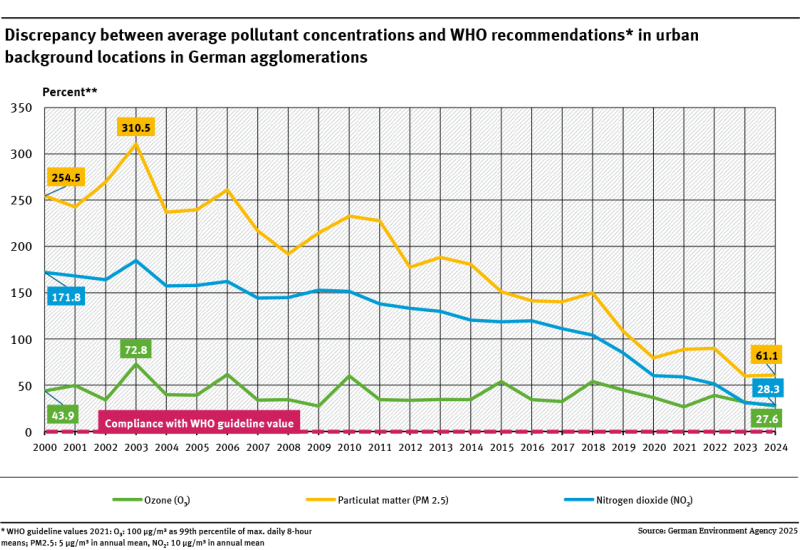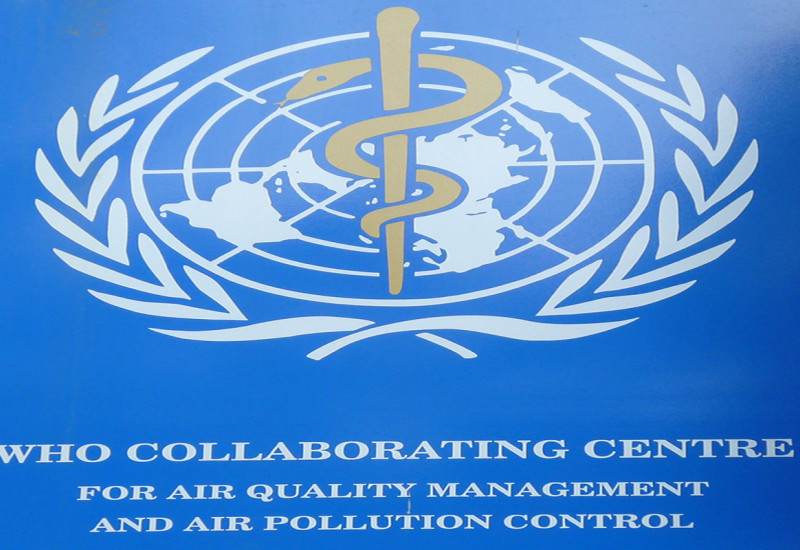The basic pollution levels in German conurbations significantly exceed WHO recommendations from 2021 for particulate matter (PM2.5) and nitrogen dioxide (NO₂).In the vicinity of pollutant sources, pollution levels can even be significantly higher.The situation for NO₂ and PM2.5 has improved considerably since 2000, but the WHO recommendations for 2021 are still clearly exceeded.Ozone and PM2.5 pol... read more
WHO
Umwelt-Indikator
Health
WHO Collaborating Centre for Air Quality Management
The WHO Collaborating Centre for Air Quality Management and Air Pollution Control (WHO CC) provides the WHO Regional Office for Europe with scientific advice and support in the field of health impact assessment of ambient and indoor air pollution, and climate change. read more
Water
WHO Collaborating Centre for Research on Drinking-water Hygiene
All over the world, national public authorities and research institutes support the work of the World Health Organization (WHO). The German Environment Agency is a WHO Collaborating Centre for research on drinking-water hygiene. read more
Health
Commissions and Working Groups
Experts from federal and other authorities, from universities and other research institutes give advice to the Federal Environment Agency in commissions and working groups. Recommended actions are worked out after intensive discussion. Otherwise the Federal Environment Agency provides advice to working groups of federal government and German federal states as well as to the WHO. read more
Transport
Traffic noise
Traffic noise is a serious problem in Germany, where surveys show that traffic-noise pollution has declined only marginally over the past decade. A statistically significant proportion of the German population is exposed to a sufficiently high level of noise pollution for this factor to constitute a probable health risk. read more





